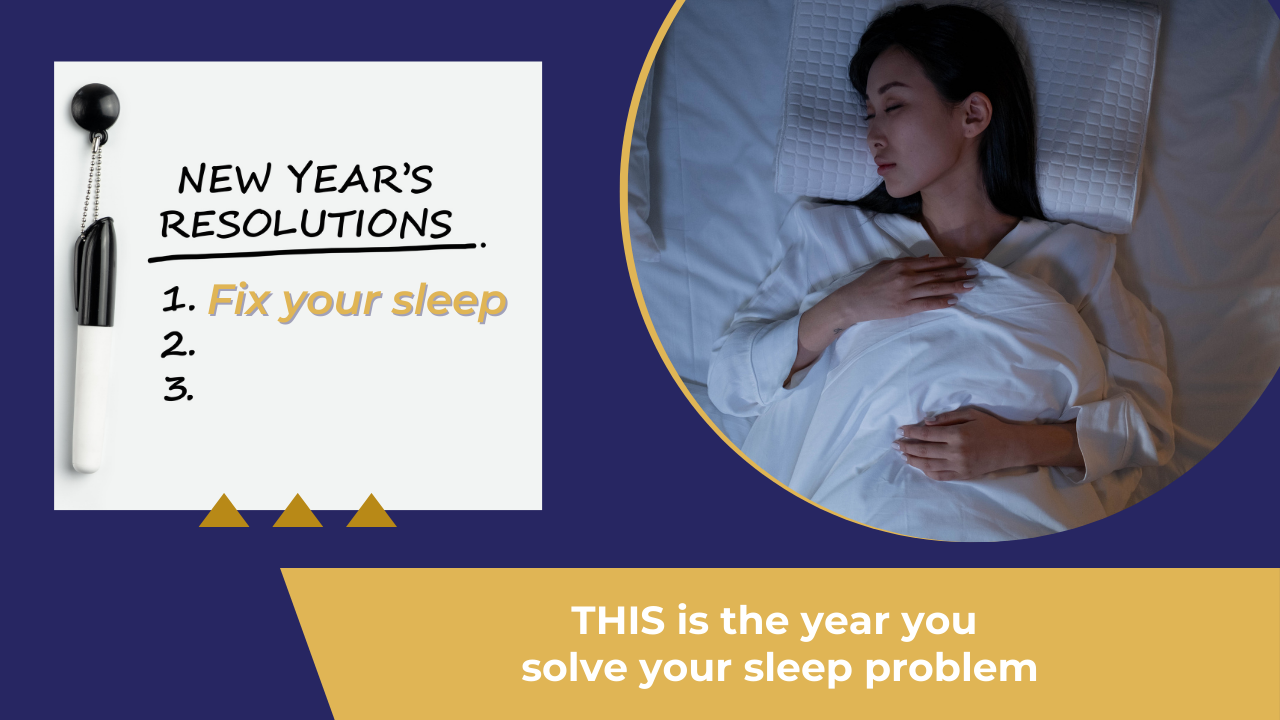Make THIS the year you solve your sleep problem
Jan 01, 2023
Do you have a resolution to finally fix your sleep this year? Where goals and habit formation are concerned, there is a formula that can wildly increase your chances of success. You can use the acronym SMART to guide you.
S is for specific. Telling yourself you want to “get to bed earlier” or “sleep more” isn’t enough. How can you get really specific about what you want to achieve? The more you define your goal, the easier it will be to visualize and take steps to get there. If possible, quantify the goal with a percentage, frequency, or number. Write your goal using commitment statements like “I will…”
M is for measurable. If your goal is specific, you will probably be able to measure it. Make the measurement obvious. Can you mark it on your calendar or track it with an app? What benchmarks can you schedule to review your progress?
A is for achievable. Set yourself up for success! What would be reasonably achievable for you? Do you have the resources to make this goal happen? The idea is to stretch yourself but stay within the realm of what is possible with your commitment, effort, and time.
R is for relevant. Why is this goal important to you? Actually writing down your “why” for your goal is powerful when you need a boost of resilience. How would achieving this goal improve your well-being, your relationships, or your productivity?
T is for time-bound. Picking an end date for your goal helps define a time frame and encapsulates your project. One, two, or three months are reasonable time frames when it comes to sleep goals. Knowing where the endpoint is can help you keep your motivation up.
Example:
- Specific: I will get 7-8 hours of sleep per night on a consistent schedule.
- Measurable: I will use an app to record my sleep time, and I will write it down on a calendar beside my bed so I can see my progress every day. I’m going to review my progress every week and decide how to troubleshoot if something isn’t working.
- Achievable: This goal is achievable if I stop using electronics at 9 pm and take time to unwind and prepare for bed. I’m going to set an alarm on my phone to remind me when it’s time to make this transition. I plan to have “lights out” between 10:30 and 11 pm and get out of bed at 7 am every morning.
- Relevant: Getting my sleep on a regular schedule will help me sleep more deeply and reliably. I’m tired of the unpredictability. I want to have some relaxation time before I sleep and not be zoned out on my phone. I want to wake up more easily and feel energetic during the day. I want to see if better sleep improves my concentration and mood.
- Time-bound: I am going to commit to the goal for two months.
There are a couple of bonus tips that I’d like to share with you. A goal is more likely to be achieved if you pair it with a deliberate shift in your identity. This means modifying your self-talk to match your goal outcome. Continuing with the example above, you might affirm to yourself: “I am a person who prioritizes getting enough healthy sleep so I can function at my best.” Write it, think it, speak it, live it. Imagine yourself being successful at your goal and enjoying all the benefits that result. Step into the identity of the future you–the you who has already achieved it. If you happen to veer from your path, reinforcing this identity shift will be a magnet to help bring you back on track.
Set up a reward for yourself when you achieve your goal, and even mini-rewards along the way. Revel in the accomplishing of the rewards. Ask yourself: How can I make this easy? How can I make this more fun? Will you move your screen time to the morning? Buy yourself silk pillowcases, a heated eye mask, or a new set of sheets? Schedule a massage or a spa treatment? Working in some perks makes the whole process easier and adds momentum!
You've got sleep problems...
so is it time for a sleep study?

